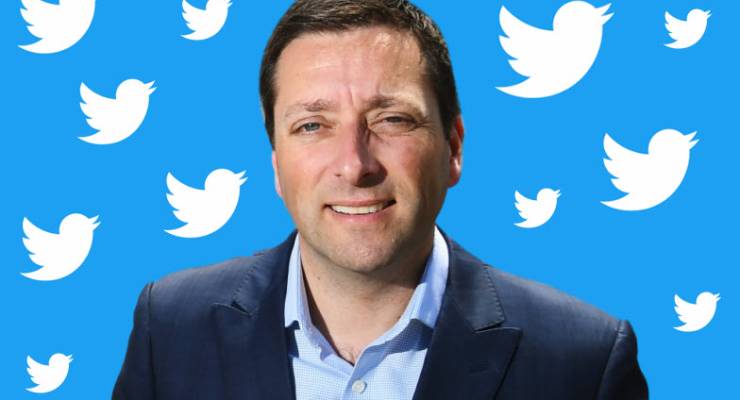
Victorian Liberal Leader Matthew Guy says that he’s “listening to the needs of all Victorians”, but to many people on social media, it isn’t clear who he’s listening to.
Guy, who has been making his pitch to Victorian voters to become the next premier at Saturday’s state election has demonstrated a famously quick trigger finger when it comes to blocking people on social media who challenge or question his party’s policies.
The Twitter hashtag #BlockedByMatthewGuy has hundreds of responses from people who have been blocked:

While several account users admitted to using foul language or being abusive, the majority said that all they had done was ask questions or disagree with his viewpoints.
The Twitter account @MatthewGuyBot was created to specifically post Guy’s tweets so that those blocked by him could still access his posts. And in a deliberate act of irony, it blocked Guy’s account.
Crikey contacted Guy’s office to discuss this matter, but phone calls were not returned. However, in February when the topic was raised by ABC Melbourne, Guy said that he was simply blocking abuse. He also declared that, “If you don’t like what you see on social media, block it”.
It’s a strategy that seems at odds with the rules of Victorian Parliament which state the role of elected representatives is to listen to and convey their constituents’ views to their party and government.
Is this good politics?
There’s a lot on the line for Guy right now. The election is just days away, and the Liberals are trailing in the polls. The October 30 Newspoll had Labor the runaway winner in the two-party-preferred leading at 54-46; Daniel Andrews had 45% support as preferred premier, compared to just 29% for Guy.
While social media is just one small factor that could influence voters’ opinions, Dr Marcus Phipps, an expert in political marketing at the University of Melbourne, says that Guy’s “controlling” approach — which matches the Liberal Party’s election slogan of “Get back in control” — tells voters that he can’t cope with criticism.
“The whole point of social media is that it’s a two-way street; a conversation,” Phipps tells Crikey. “[Guy’s actions] also just go against what Australians like, which is a politician who can laugh at themselves. He comes across as someone who cannot do that.”
Phipps names former PM Bob Hawke as a good counter-example. He adds that Guy is undercutting his “I’m listening” message when there’s a hashtag that shows he systematically blocks people, including paramedics and teachers.
Guy is not the only one who regularly blocks accounts, however. It’s increasingly common behaviour for Australian politicians, many of whom are from the conservative side that routinely promotes freedom of speech. One Nation Senator Pauline Hanson, Nationals MP George Christensen, Liberal Democrats Senator David Leyonhjelm, former Foreign Affairs Minister Julie Bishop, and Prime Minister Scott Morrison are renowned as frequent blockers.
With the exception of blocking social media accounts due to abuse, threats or spam, Dr Phipps says that politicians would do well to follow the example of cafes, pretty much all of which have some negative reviews. “Nobody likes criticism or a challenge, but the best cafes are the ones that don’t delete bad reviews, they respond,” he says.
“You reply, you give your opinion or take on the issue, and other people will read your response. And while you might never win over everyone, you’ll actually win over some people, including swinging voters.”
What are the rules here?
Social media has become an important way for constituents to communicate with their elected representatives at both state and federal level. Some politicians engage in online discussions and debates, while others use it as simply just another way to post a media release or a photo of them handing over a novelty-sized cheque.
The question is whether rules should be in place to formally acknowledge social media as an important and legitimate means of communication for, and between, members of the public and those they elect to represent them. A code of conduct, which would include whether it’s acceptable for an elected representative to block constituents for the singular reason that they don’t agree with them, would be a good way of addressing this.
The issue becomes especially important when you recognise that many politicians, especially ministers and senior shadow ministers, have dedicated, taxpayer-funded digital and social media employees. This includes Vikki Campion, the mistress-turned-partner of former deputy PM Barnaby Joyce, who briefly worked as social media adviser for Nationals Senator Matt Canavan — a job which paid $191,000 per annum.
Should taxpayers have to fund people to run social media accounts on behalf of politicians who refuse to even tolerate opposing views? It’s something for members of parliament to answer, assuming that they haven’t blocked those asking the question.
At the time of writing, Alana Schetzer was not blocked by Matthew Guy.











Crikey is committed to hosting lively discussions. Help us keep the conversation useful, interesting and welcoming. We aim to publish comments quickly in the interest of promoting robust conversation, but we’re a small team and we deploy filters to protect against legal risk. Occasionally your comment may be held up while we review, but we’re working as fast as we can to keep the conversation rolling.
The Crikey comment section is members-only content. Please subscribe to leave a comment.
The Crikey comment section is members-only content. Please login to leave a comment.